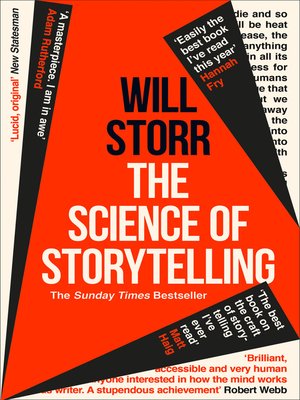


Humans prod the cause of things even if there are noneĪ scene must always start with the hero having a problem, and ending with him finding out there is another solutionĪ story is made more interesting by following a series of “because-s” rather than “and then-s”.

What does the character think others are thinking about him? The peak of curiosity is where people think they have some idea but they’re not sure if they doĭensity of a character is built by exploring the world from their perspective.

This is why we find openings such as “The Dursleys of Privet Drive were perfectly normal, thank you very much.” so interesting. Applying dazzling psychological research and cutting-edge neuroscience to the foundations of our myths and archetypes, he shows how we can use these tools to tell better stories - and make sense of our chaotic modern world.Our brains are wired to be interested, intrigued and satisfied by change or even the threat of change. In this scalpel-sharp, thought-provoking audiobook, Will Storr demonstrates how master storytellers manipulate and compel us, leading us on a journey from the Hebrew scriptures to Mr Men, from Booker Prize-winning literature to box set TV. This is curious, for if we are to truly understand storytelling in its grandest sense, we must first come to understand the ultimate storyteller - the human brain. There have been many attempts to understand what makes a good story - from Joseph Campbell’s well-worn theories about myth and archetype to recent attempts to crack the ‘Bestseller Code’. Storytelling is an essential part of what makes us human. We use them to construct our relationships, to keep order in our law courts, to interpret events in our newspapers and social media. They drive us to act out our dreams and ambitions and shape our politics and beliefs. Stories mould who we are, from our character to our cultural identity.


 0 kommentar(er)
0 kommentar(er)
